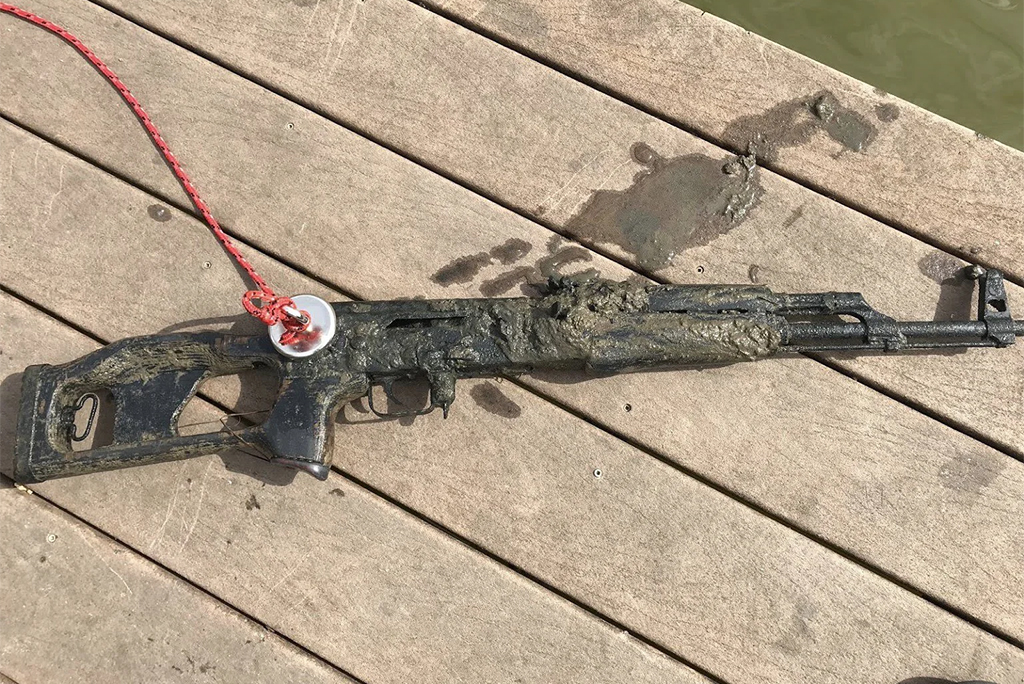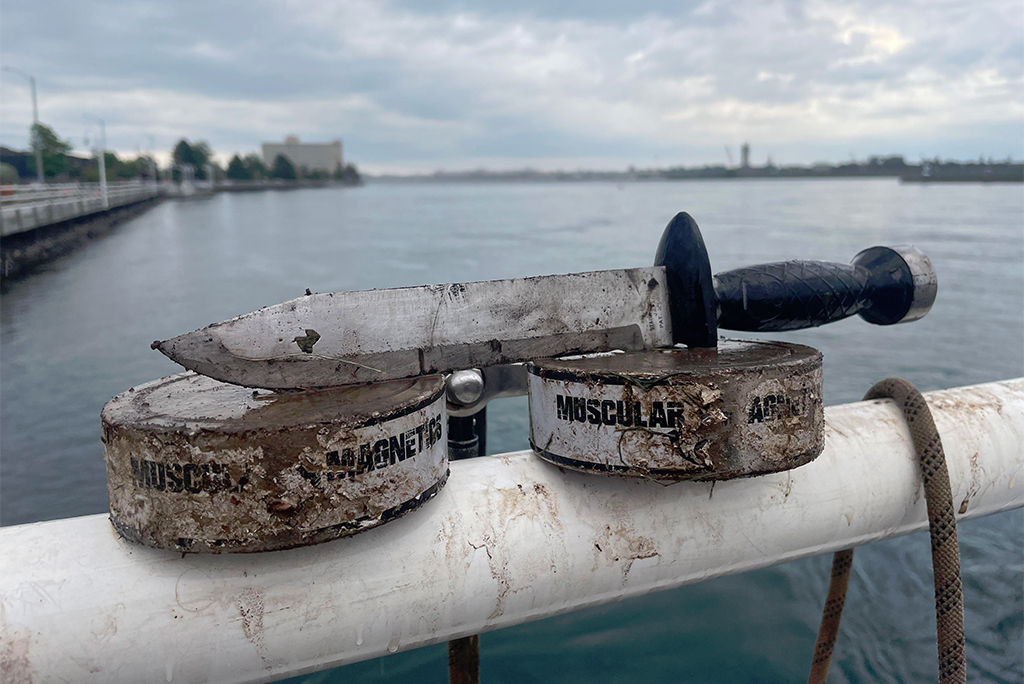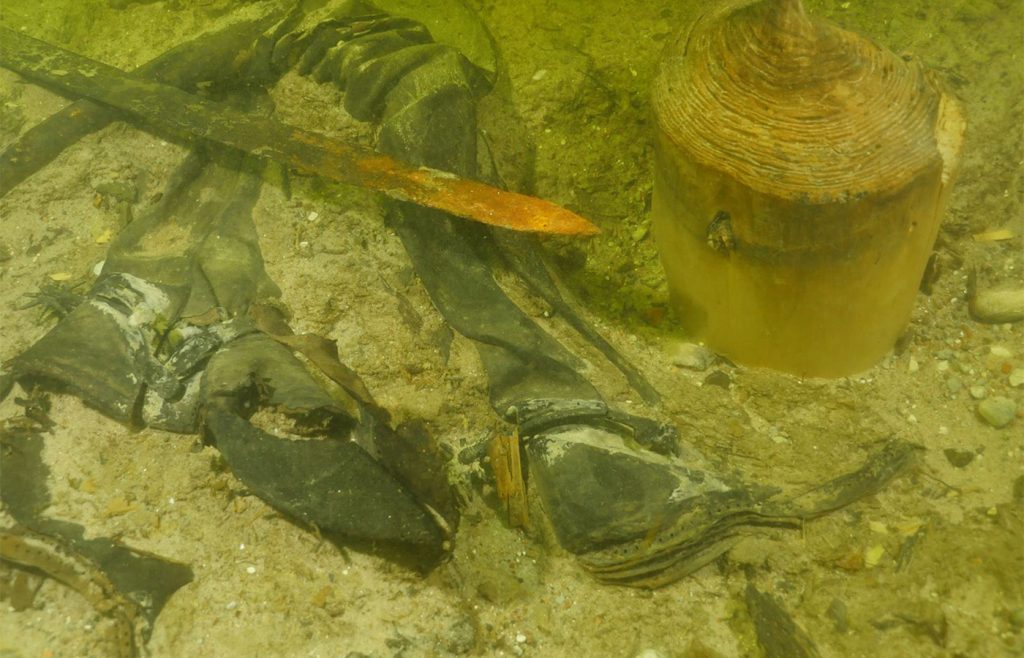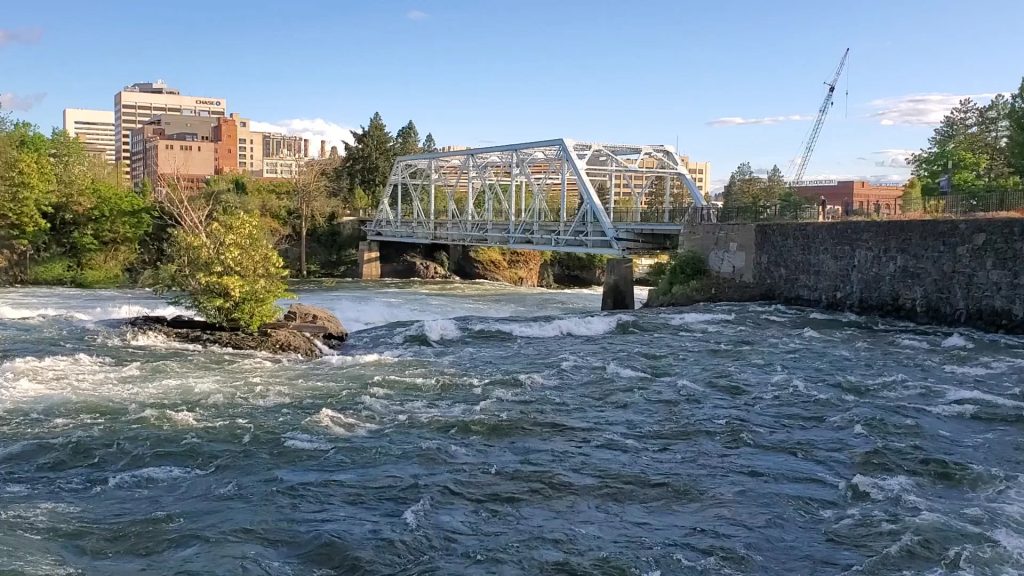Magnet fishing has become a popular hobby in recent years. However, before you head out and start casting your magnet into the water, it is important to understand the laws surrounding magnet fishing in the United Kingdom. In this article, we will cover some of the key aspects of magnet fishing laws in the UK, including what to do if you find guns, knives, explosives, and the similarities of laws for metal detecting.
Table of Contents
Finding Guns Magnet Fishing
Magnet fishing is an enjoyable hobby that has been growing in popularity in the United Kingdom over recent years. However, there are risks associated with the activity, and one of the most significant risks is coming across dangerous items such as guns. If you do come across a firearm while magnet fishing, it is essential to know what steps to take to ensure your safety and the safety of those around you.
In the United Kingdom, it is illegal to possess a firearm without a valid license or permit. If you find a firearm while magnet fishing, it is crucial that you do not attempt to handle it. Instead, call the police immediately and wait for them to arrive. It is essential to avoid touching or moving the firearm, as it could have been used in a crime and could hold valuable forensic evidence.
The police will have the necessary training and equipment to safely remove the firearm and transport it for forensic analysis. They will also be able to investigate the circumstances surrounding the discovery of the firearm. It is important to remember that the discovery of a firearm while magnet fishing should be taken seriously, and you should cooperate fully with the police in their investigation.
It is also essential to be aware of the potential risks associated with coming into contact with firearms. Guns can be highly dangerous and should only be handled by trained professionals. In the United Kingdom, it is illegal to carry a firearm without a valid license or permit. Attempting to handle or use a firearm that you have found while magnet fishing could result in serious injury or even death.

In conclusion, discovering a firearm while magnet fishing in the United Kingdom is a serious matter that should be handled with care. It is crucial to avoid touching or moving the firearm and to call the police immediately. The police will have the necessary training and equipment to safely handle the firearm and investigate the circumstances surrounding its discovery. It is also important to remember that firearms can be highly dangerous and should only be handled by trained professionals. By following these guidelines, you can enjoy magnet fishing safely and responsibly while minimizing the risks associated with the activity.
Finding Knives Magnet Fishing
Magnet fishing is an increasingly popular pastime in the United Kingdom, with many enthusiasts heading out to local waterways in search of lost treasures. While it can be an exciting and rewarding activity, it is important to be aware of the potential risks and dangers that come with it. One such risk is the discovery of dangerous weapons such as knives.
If you find a knife while magnet fishing in the United Kingdom, it is important to remember that knives are classified as weapons and are regulated under UK law. As such, it is illegal to carry a knife in public without good reason or lawful authority. If you come across a knife while magnet fishing, it is essential that you do not touch it. Instead, call the police immediately and wait for them to arrive.
The police will have the necessary training and equipment to safely handle the knife and investigate the circumstances surrounding its discovery. It is important to remember that knives are dangerous weapons and should only be handled by trained professionals. Attempting to handle or use a knife that you have found while magnet fishing could result in serious injury or even death.
It is also important to note that even possessing a knife in public without lawful authority or good reason can result in criminal charges. The maximum penalty for carrying a knife in public is four years’ imprisonment and an unlimited fine. There are certain exceptions to this rule, such as for those who use knives for work purposes, but it is always best to check the law and regulations before carrying any kind of knife.

In conclusion, discovering a knife while magnet fishing in the United Kingdom is a serious matter that should be handled with care. It is crucial to avoid touching or moving the knife and to call the police immediately. The police will have the necessary training and equipment to safely handle the knife and investigate the circumstances surrounding its discovery. It is also important to remember that knives are dangerous weapons and should only be handled by trained professionals. By following these guidelines, you can enjoy magnet fishing safely and responsibly while minimizing the risks associated with the activity.
Finding Bombs Magnet Fishing
While it is rare to come across bombs or other explosive devices while magnet fishing in the United Kingdom, it is still important to be aware of what to do if you do happen to find one. Explosives can be extremely dangerous and should not be handled by anyone who is not trained to do so.
If you come across a suspected explosive device while magnet fishing, the first thing you should do is move away from the area and call the police immediately. Do not attempt to touch or move the device, as even the slightest movement could trigger an explosion.
When the police arrive, they will assess the situation and call in specialist bomb disposal units if necessary. These units have the necessary equipment and training to safely handle and dispose of explosive devices.
It is important to note that it is illegal to possess or use explosive devices in the UK without a license. If you come across any explosives while magnet fishing, you should report them to the police immediately. Failure to do so could result in serious consequences.

In addition to the legal implications, handling explosives can also pose a serious threat to your safety and the safety of those around you. It is essential to stay vigilant and alert while magnet fishing, and to report any suspicious items to the authorities as soon as possible. By doing so, you can help to keep yourself and others safe while enjoying this exciting hobby.
Metal Detecting Law Similarities
Metal detecting and magnet fishing are two related hobbies that involve searching for historical artifacts and other treasures buried beneath the earth. In the United Kingdom, the laws governing these activities are similar in some ways, but they are also distinct from each other.
Both metal detecting and magnet fishing require permission from the landowner before you begin. You cannot simply go out and start detecting or fishing on someone else’s property without first obtaining their permission. It is important to respect private property rights and follow the rules and regulations set out by the landowner.
In addition, both activities require you to report any significant finds to the local authorities. This is to ensure that any important historical artifacts are preserved and recorded for posterity. Failure to report significant finds can result in a fine or even prosecution.
However, metal detecting is generally more regulated than magnet fishing. In the UK, there are specific laws and codes of practice that metal detectorists must follow. For example, metal detectorists must not search for artifacts on protected sites such as Scheduled Ancient Monuments without permission from Historic England. They must also obtain permission from the landowner before they start detecting, and they must not damage the land in the process.
In contrast, there are no specific laws governing magnet fishing in the UK, although it is still important to obtain permission from the landowner before you start. However, magnet fishing is generally seen as a less intrusive activity than metal detecting, as it does not involve digging or disturbing the ground. This means that magnet fishers are less likely to damage historical artifacts or other important archaeological finds.

In summary, while there are some similarities in the laws governing metal detecting and magnet fishing in the UK, there are also some significant differences. Metal detecting is generally more regulated and requires more specific permissions and considerations, while magnet fishing is generally viewed as a less intrusive activity.
Wreck and Salvage Laws
In the United Kingdom, the laws surrounding wreck and salvage can be complex and are designed to protect cultural heritage and ensure that any valuable items are properly reported and accounted for. These laws cover any items found in UK territorial waters, which extends up to 12 nautical miles from the coast.
The Receiver of Wreck is responsible for administering the law and is a representative of the Maritime and Coastguard Agency. They have the power to investigate any wrecks and salvage operations and can also conduct searches to recover lost items.
If you find any wreck or salvage items, you must report them to the Receiver of Wreck within 28 days, and 14 days for items of historical or cultural significance. This can include anything from shipwrecks to cargo containers that have fallen overboard. Failure to report items can result in significant fines or even imprisonment.
It is also important to note that any items found may not necessarily belong to the finder, and there may be competing claims from other parties. It is therefore advisable to seek legal advice if you are unsure about your rights and responsibilities.
If the Receiver of Wreck determines that the items found are of significant historical or cultural value, they may be classified as ‘protected wreck’ and further restrictions may apply. For example, diving on a protected wreck requires a license from the Receiver of Wreck.

In addition to these laws, it is also important to be aware of any local bylaws that may apply to specific areas. Some areas may be designated as protected sites or nature reserves, which may have additional restrictions on any activities, including magnet fishing or metal detecting. It is important to do your research and obtain any necessary permissions before engaging in these activities.
Check Your Country Regulations
Before embarking on a magnet fishing trip, it is essential to check the country regulations to ensure that the activity is legal in the area. While magnet fishing is generally legal in the United Kingdom, there may be specific laws and regulations that differ from region to region.
It is always a good idea to check with local authorities, such as the local council or landowner, to ensure that magnet fishing is allowed in the area you plan to visit. Some areas may have specific bylaws, such as prohibiting magnet fishing in certain locations, so it is important to obtain permission and understand any restrictions that may be in place.
In addition to local regulations, it is also important to be aware of any national laws that may impact magnet fishing. For example, in the UK, the Treasure Act 1996 regulates the discovery of certain items, including treasure trove and archaeological finds, which must be reported to the local coroner. Failure to report such items can result in a fine or even imprisonment.
Furthermore, it is important to check the environmental regulations that may apply to magnet fishing, as this activity can potentially cause harm to the ecosystem. For example, using magnets with a high pull force may cause damage to underwater habitats and disrupt the natural balance of the water.

In conclusion, while magnet fishing is generally legal in the UK, it is important to be aware of any specific regulations and obtain the necessary permissions before engaging in the activity. It is always better to err on the side of caution and ensure that magnet fishing is conducted in a safe and responsible manner, respecting both the environment and the law.
Check City / Local Ordinances
If you are planning on magnet fishing in the United Kingdom, it is important to be aware of not just national laws, but also any city or local ordinances that may apply. Different cities and local authorities may have their own rules and regulations when it comes to magnet fishing, so it is always worth doing some research before you start.
One common local ordinance that applies to magnet fishing is restrictions on where you can fish. Some local authorities may have designated areas where magnet fishing is prohibited, so it is important to check the local by-laws to avoid breaking any rules.
Another important consideration is the items you can or cannot retrieve from the water. For example, some cities may have specific rules around the retrieval of historical artefacts or items of cultural significance. It is important to understand these rules to avoid any legal issues.
It is also worth noting that some cities may require you to obtain a permit or license before you start magnet fishing. This could involve filling out an application, paying a fee, or meeting certain criteria, such as being a member of a local fishing club.

Overall, the key message is to always check the city or local ordinances that apply to magnet fishing in your area. Failure to comply with these rules could result in fines or legal issues, so it is important to take the time to understand the regulations before you start.
Magnet fishing has become a popular hobby among people who enjoy the thrill of discovering hidden treasures in bodies of water. While the activity is enjoyable and exciting, it is important to be aware of the laws and regulations that govern magnet fishing. By following these rules, you can ensure that you are not only enjoying the hobby safely but also in a responsible manner.
It is important to note that magnet fishing can have environmental impacts, especially if not done responsibly. Careless disposal of trash or debris can pollute the water and harm wildlife. Therefore, it is crucial to be mindful of the environment when engaging in this hobby. Proper disposal of hazardous materials and reporting of significant finds to the authorities are some of the steps that can help protect the environment.
Furthermore, knowing the laws and regulations that govern magnet fishing in your area is essential. These regulations may vary depending on your location, and failing to abide by them can result in hefty fines, confiscation of equipment, or even imprisonment. Therefore, it is always advisable to check with the relevant authorities before engaging in magnet fishing.
In conclusion, magnet fishing is an enjoyable hobby that can provide a unique way of exploring bodies of water and discovering hidden treasures. However, it is essential to undertake the activity responsibly by following the rules and regulations that govern it. It is also important to be mindful of the environment by properly disposing of hazardous materials and reporting any significant finds. By adhering to these guidelines, you can enjoy magnet fishing safely, responsibly, and in compliance with the law.

